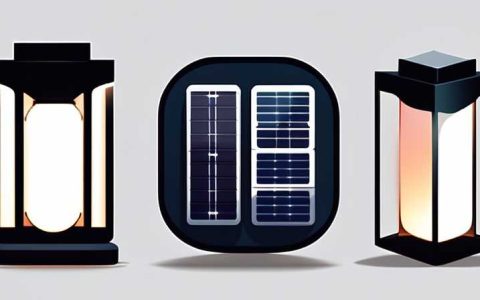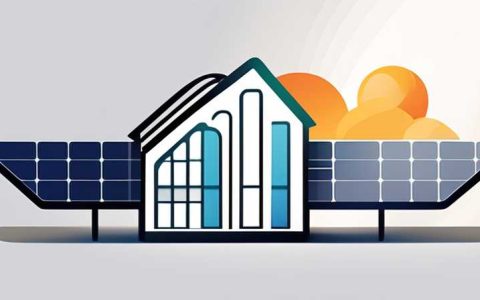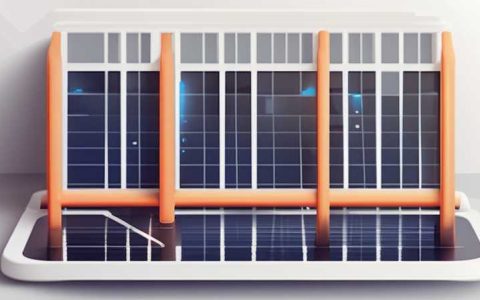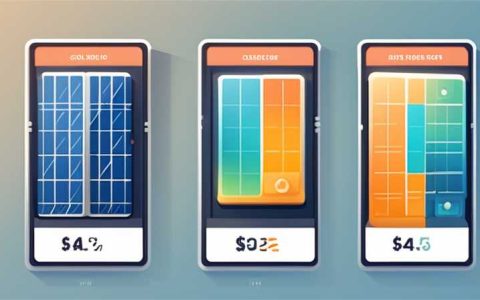
The implementation of solar panels for power generation offers several significant advantages that contribute to both individual and societal needs. 1. Renewable energy source, utilizing the sun’s vital energy, 2. Reduction in electricity bills, potentially offering substantial savings for homeowners, 3. Minimal environmental impact, explaining how traditional power generation often harms the environment, and 4. Energy independence, empowering users to produce their own electricity. The promising aspect of solar energy lies in its sustainability and lower carbon footprint. Additionally, the advancement of technology in this sector continuously enhances the efficiency of solar panels, leading to better energy capture and utilization over time, thereby making solar energy an essential element in the transition toward a greener future.
1. RENEWABLE ENERGY SOURCE
Solar panels convert sunlight into electricity, presenting a renewable energy source that contrasts sharply with fossil fuels. These technologies harness the sun’s rays, making it possible to generate electricity without depleting natural resources. Unlike oil, coal, or natural gas, which can be exhaustively consumed, solar energy is available daily, as long as the sun shines. This characteristic contributes to a reliable and continuous energy supply, reducing dependency on finite resources.
The shift to solar energy signifies a commitment to creating sustainable energy practices. As solar technology continues to advance, the efficiency of solar panels increases, allowing for a greater capture of the sun’s energy even during overcast or less sunny days. Moreover, as solar arrays become more prominent, they pave the way for innovative solutions, such as decentralized energy systems where communities and individual households can become their electricity producers. This decentralization reduces transmission losses that occur when electricity is transported over long distances.
2. REDUCTION IN ELECTRICITY BILLS
One of the most impactful benefits of adopting solar technology for power generation is the reduction in electricity bills. Once installed, solar panels can significantly lower monthly energy costs. Households or businesses can harness sunlight during the day to power their operations, potentially leading to self-sufficiency in power consumption. With a well-designed solar power system, the initial investment can often be recouped in energy savings within several years.
In many regions, there are also financial incentives available that further enhance the affordability of solar energy systems. This includes tax credits, rebates, or net metering programs allowing users to sell excess energy back to the grid, increasing potential savings. Over time, as energy prices continue to rise, solar power stands as a safeguard against future rate hikes, providing financial predictability to users. Furthermore, the longevity of solar panels, typically rated for over 25 years, ensures that the electricity savings continue long after the initial investment has been recovered.
3. MINIMAL ENVIRONMENTAL IMPACT
The environmental implications tied to energy production highlight another key advantage associated with solar panels for power generation. Minimal environmental impact characterizes solar energy, contrasting sharply with conventional power generation methods that contribute to pollution and greenhouse gas emissions. Solar energy systems produce electricity without emitting harmful pollutants, which can lead to cleaner air quality and reduced health risks associated with poor environmental conditions.
In addition to mitigating air pollution, solar panels also contribute positively to water conservation. Traditional energy production methods often require vast amounts of water for cooling processes, which can strain local water supplies. Solar energy systems utilize minimal water, predominantly for cleaning purposes, thus having a lesser ecological footprint on water resources. The widespread adoption of solar energy aligns with global objectives to combat climate change and promote sustainability, playing a vital role in reducing humanity’s reliance on carbon-intensive energy sources.
4. ENERGY INDEPENDENCE
With growing interest in energy independence, solar panels for power generation provide an excellent pathway toward energy independence for individuals and communities. By implementing solar power systems, users can generate their electricity, reducing their reliance on external sources. This capability becomes particularly advantageous in remote or underserved areas facing challenges with traditional infrastructure development.
Energy independence promotes resilience within communities, particularly during times of energy shortages or price volatility in conventional energy markets. Additionally, investing in solar technologies contributes to a decentralized energy landscape. Whenever a community can harness its renewable resources, it builds a robust energy network capable of withstanding external pressures. This empowerment can foster local economic development by creating jobs in the solar industry, thereby stimulating job growth and economic stability.
5. IMPACT ON PROPERTY VALUE
In addition to lower utility bills and environmental benefits, another noteworthy impact of solar panels is the potential increase in property value. Homes equipped with solar energy systems often command a higher market price due to their energy-generating capability. This aspect increasingly appeals to potential homebuyers, who recognize the long-term cost savings and ecological benefits associated with solar-powered properties.
Real estate trends have shown that properties fitted with solar panels attract more buyers, as energy costs are an ongoing expense that can deter potential purchasers. By integrating solar technology, homeowners can make their property more attractive in a competitive market, ultimately leading to higher resale values. Furthermore, as solar energy technology grows and becomes increasingly integrated into the everyday home, property values are expected to rise even further, marking solar panels as a wise investment for long-term financial and environmental returns.
6. TECHNOLOGICAL ADVANCEMENTS IN SOLAR ENERGY
The evolution within solar energy technology is another pivotal aspect, reinforcing its viability. Technological advancements have significantly enhanced the efficiency and effectiveness of solar panels. Recent innovations, such as bifacial solar panels, can capture sunlight from both sides, leading to increased energy output throughout the day.
Innovative storage solutions are also emerging, allowing users to store excess energy generated during peak sunlight hours for use when the sun is not shining. This capacity is crucial, addressing one of the previous limitations of solar energy. Enhanced battery technologies ensure electricity is available on demand, providing reliable energy access. Ongoing research and development efforts in this sector continue to yield breakthroughs, leading to more affordable, efficient, and accessible solar solutions for consumers.
7. CONTRIBUTION TO JOB CREATION
Another vital component of integrating solar panels into power generation is their influence on job creation. The solar industry is rapidly expanding, leading to a growth in employment opportunities across various sectors. From manufacturing to installation and maintenance, numerous skills are required to support solar energy systems. This growth encourages a diverse labor market, providing jobs not only for those with technical training but for individuals seeking entry-level work as well.
The creation of jobs extends beyond direct employment within the solar sector. As communities adopt solar technology, auxiliary industries will also benefit—from increased demand for electrical services to another manufacturing of complementary technologies. This transformative potential positions solar power as a catalyst for economic development, fostering job growth and sustainable practices.
FREQUENTLY ASKED QUESTIONS
WHAT IS THE AVERAGE COST OF SOLAR PANELS?
Determining the average cost of solar panels depends on various factors, such as the size of the system and region in which one resides. Typically, residential solar panel systems can range from $10,000 to $30,000 before any tax credits or incentives. The total cost includes not only the solar panels but also installation, permits, and additional equipment like inverters and mounting hardware. Financial incentives like the Investment Tax Credit (ITC) can significantly offset these costs, making solar energy more accessible for homeowners. Furthermore, with financing options such as solar loans or leases available, initial costs can be reduced over time, making solar not only a sustainable choice but also a financially sensible one. The long-term savings on electricity bills often justify the upfront investment.
HOW LONG DO SOLAR PANELS LAST?
Solar panels generally have a lifespan of 25 to 30 years, thanks to advances in manufacturing technologies that enhance durability and efficiency. Most manufacturers offer warranties that guarantee performance for at least 25 years, assuring homeowners of sustained energy production throughout this period. However, it is essential to understand that while performance remains high, a gradual decrease in energy output occurs over time, typically around 0.5% to 1% per year. Routine maintenance and inspections can prolong the life of solar panels and ensure they operate at their highest efficiency. Additionally, advancements in technology may lead to even longer-lasting panels, with some newer installations promising extended longevity. Proper care, including regular cleaning and monitoring solar output, can ensure systems continue functioning effectively beyond their warranty period.
WHAT ARE THE DISADVANTAGES OF SOLAR ENERGY?
Despite the numerous benefits associated with solar energy, certain disadvantages merit consideration. One primary concern is the initial cost of installation, which can be prohibitive for some homeowners or businesses. Though solar prices have decreased over the years, the high upfront investment may deter adoption. Furthermore, not every location offers optimal sunlight; shading from trees or nearby structures can reduce system efficiency. Another factor involves energy production variability, as solar panels generate less electricity on overcast days or during winter months. This intermittency necessitates battery storage solutions, adding another layer of cost and complexity to solar energy systems. While technological advancements may mitigate some disadvantages, a thorough assessment of individual circumstances is crucial in evaluating the transition to solar power.
8. FINAL THOUGHTS
The myriad benefits associated with solar panels for power generation substantiate their growing popularity and importance in modern energy solutions. By embracing renewable energy sources, individuals and communities can significantly impact their environment and financial futures. The capacity for solar panels to provide a renewable energy source ensures sustainability for generations to come. Lowering electricity bills offers households substantial savings over time, allowing them to invest in other essential areas of their lives.
As the planet faces pressing environmental challenges, the minimal impact of solar energy presents a compelling argument for transitioning from traditional to renewable energy sources. Beyond environmental concerns, moving towards energy independence provides users with greater autonomy over their electricity supply, shielding them from fluctuating energy costs. Additionally, the significant potential for property value enhancement further incentivizes the adoption of solar technology in residential areas.
The ongoing advancements in technology also play a crucial role, continuously improving the efficiency and affordability of solar panels. This evolution underscores a robust future for solar energy, where innovations such as bifacial panels and improved storage solutions enhance the reliability and accessibility of solar power systems.
Furthermore, as the solar industry continues to expand, the creation of jobs demonstrates its multifaceted benefits—providing economic stimulation and job opportunities for communities. Despite certain drawbacks, careful consideration of localized goals and conditions can pave the way for successfully integrating solar energy into wider energy strategies.
In conclusion, the advantages of solar panels—ranging from financial savings to environmental preservation—position them as pivotal tools in reshaping how we approach energy production. The notion of transitioning to solar energy embodies not only a practical choice for electricity generation but also a broader vision for a sustainable, resilient future. Recognizing these benefits drives the shift toward cleaner, renewable energy, making solar energy an essential element in combating climate challenges while promoting economic growth and environmental responsibility.
Original article by NenPower, If reposted, please credit the source: https://nenpower.com/blog/what-are-the-benefits-of-solar-panels-for-power-generation/











